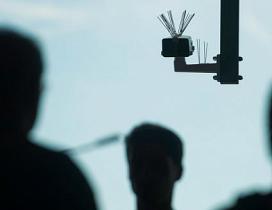Controversial ‘immunity passports’ could rely on facial recognition technology
Facial recognition and biometric identification technology could play a role in how the still-controversial concept of ‘immunity passports’ might work. Although in the very early stages, NHSX, the health service’s digital arm, is considering the idea and in what ways technology could be deployed.
The organisation received a proposal (published via the parliamentary science and technology committee) from British biometric and digital identification company Onfido, that outlines how people could use a digital immunity passport to prove that they’re immune to coronavirus.
Onfido CEO and co-founder Husayn Kassai said in a statement: “An immunity passport is a presentable proof of immunity. It is designed to help an individual prove that they have been tested and that their test result belongs to them, but without having to share any personal information.
“We’re in talks with governments and employers to make this process as fast, secure and simple as possible. Our technology is used to tie a physical human being to their digital identity using just a photo of their ID and a selfie video. Once this is bound to a test result, the digital certificate could be displayed similar to a smartphone boarding pass.”
Speaking before the science and technology committee on Tuesday, NHSX CEO Matt Gould said he’d been approached by a number of organisations about providing immunity passport technology, but said NHSX was in “the very early stages” of looking through the available options.
He said he “wouldn’t want the tech cart to come before the horse”, adding: “The science is a considerable way from being able to underpin something like that, so we are not at a point where we are building [immunity passports].”





